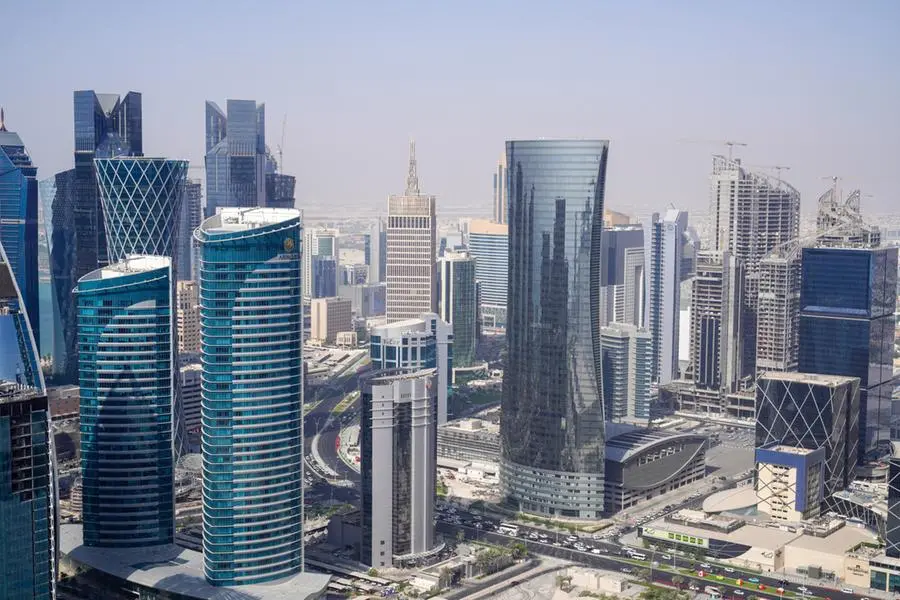PHOTO
Qatar's sovereign credit strengths are large fiscal and current-account surpluses, which are expected to limit borrowing, EIU said in its latest update.
Public debt has fallen sharply, to an estimated 44.4% of GDP at end-2022. High energy prices and a comfortable trade position are supporting external liquidity, and the balance-of-payments position is sound, EIU noted.
The riyal's peg to the dollar will continue to be backed by healthy foreign reserves and the huge assets of the Qatar Investment Authority (the sovereign wealth fund), the assets of which are estimated to be worth $475bn, EIU said.
The negative net foreign asset position of Qatar's banks remains large, but has shrunk over the past 12 months. The currency peg also limits overall risk.
The sector is well regulated and strong prudential indicators insulate banks from a deterioration in asset quality. The non-performing loan ratio is low, but higher interest rates pose a modest risk.
However, Qatar's over-reliance on hydrocarbons exports remains a vulnerability, exposing the country to global energy price movements, EIU noted.
The researcher noted in a recent update that Qatar’s real economic growth will remain stable throughout most of the long-term forecast period. Elevated global hydrocarbons prices and investment in the QNV development plan will sustain robust growth until 2030, after which growth will start to edge down.
There remains potential for bursts of high growth if the government approves further gas export projects, beyond those planned for the mid-2020st.
Diversification and the expansion of the services sector, funded by the state's hydrocarbons wealth, will also provide opportunities for growth. The population will gradually rise in the long term, to 3.1mn in 2050. As a result, growth in real GDP per head will be slower than growth in real GDP.
Qatar's overall business environment score has improved, from 6.60 for the historical period (2017-21) to 7.74 (up to 2026) for the forecast period. This has helped Qatar's global ranking to improve by 15 places, from 36th to 21st, although it retains its regional ranking, in third place.
The largest improvements in terms of scores are in the infrastructure and market opportunities categories. Qatar's fairly open foreign investment regime, open trading relationships with regional partners and sophisticated capital markets will remain strong aspects of its business environment, EIU said.
“The main shortcomings are in policy towards private enterprise and competition and in access to financing for small and medium-sized enterprises; these are expected to improve in the medium term,” EIU noted.
© Gulf Times Newspaper 2022 Provided by SyndiGate Media Inc. (Syndigate.info).Public debt has fallen sharply, to an estimated 44.4% of GDP at end-2022. High energy prices and a comfortable trade position are supporting external liquidity, and the balance-of-payments position is sound, EIU noted.
The riyal's peg to the dollar will continue to be backed by healthy foreign reserves and the huge assets of the Qatar Investment Authority (the sovereign wealth fund), the assets of which are estimated to be worth $475bn, EIU said.
The negative net foreign asset position of Qatar's banks remains large, but has shrunk over the past 12 months. The currency peg also limits overall risk.
The sector is well regulated and strong prudential indicators insulate banks from a deterioration in asset quality. The non-performing loan ratio is low, but higher interest rates pose a modest risk.
However, Qatar's over-reliance on hydrocarbons exports remains a vulnerability, exposing the country to global energy price movements, EIU noted.
The researcher noted in a recent update that Qatar’s real economic growth will remain stable throughout most of the long-term forecast period. Elevated global hydrocarbons prices and investment in the QNV development plan will sustain robust growth until 2030, after which growth will start to edge down.
There remains potential for bursts of high growth if the government approves further gas export projects, beyond those planned for the mid-2020st.
Diversification and the expansion of the services sector, funded by the state's hydrocarbons wealth, will also provide opportunities for growth. The population will gradually rise in the long term, to 3.1mn in 2050. As a result, growth in real GDP per head will be slower than growth in real GDP.
Qatar's overall business environment score has improved, from 6.60 for the historical period (2017-21) to 7.74 (up to 2026) for the forecast period. This has helped Qatar's global ranking to improve by 15 places, from 36th to 21st, although it retains its regional ranking, in third place.
The largest improvements in terms of scores are in the infrastructure and market opportunities categories. Qatar's fairly open foreign investment regime, open trading relationships with regional partners and sophisticated capital markets will remain strong aspects of its business environment, EIU said.
“The main shortcomings are in policy towards private enterprise and competition and in access to financing for small and medium-sized enterprises; these are expected to improve in the medium term,” EIU noted.





















